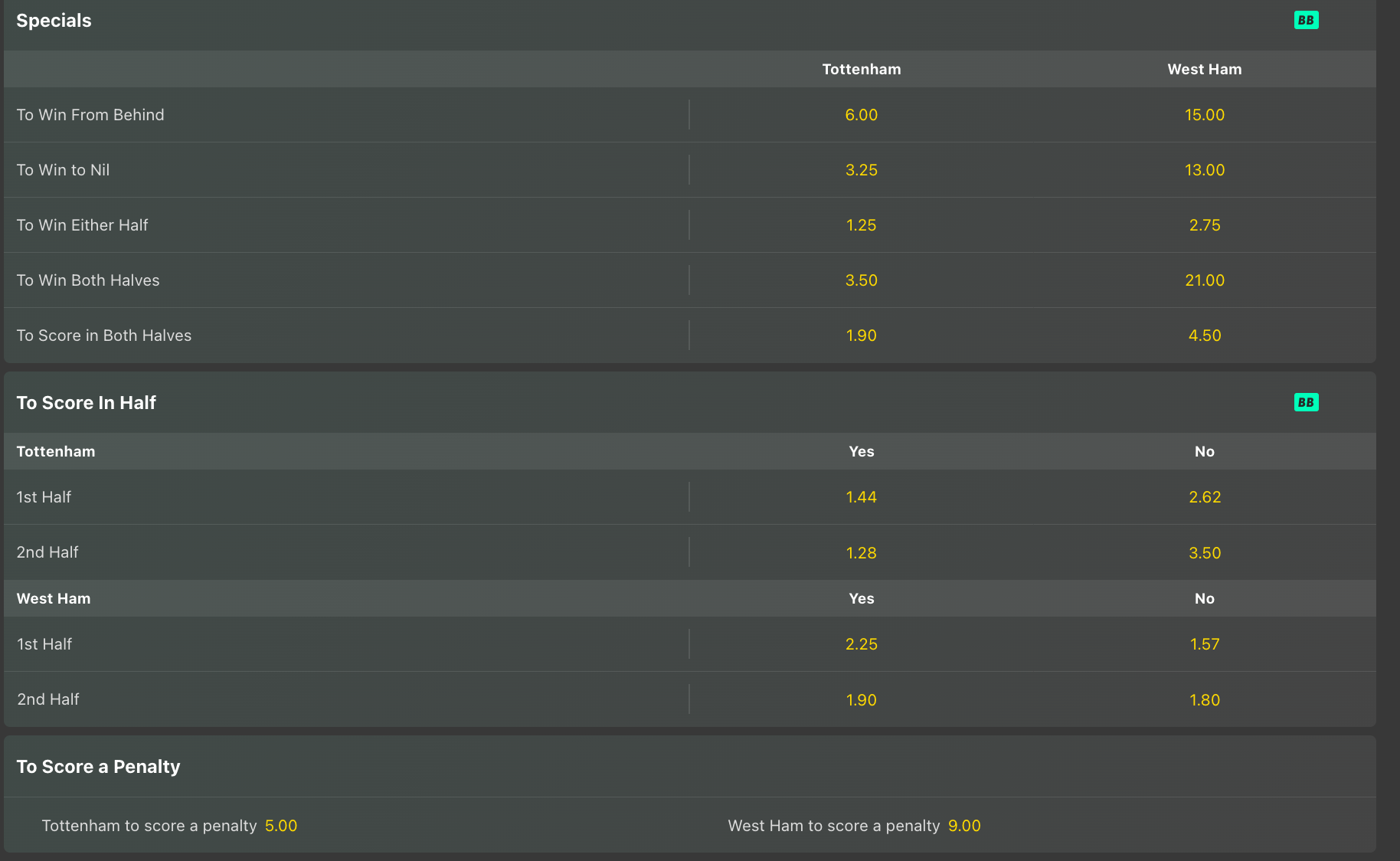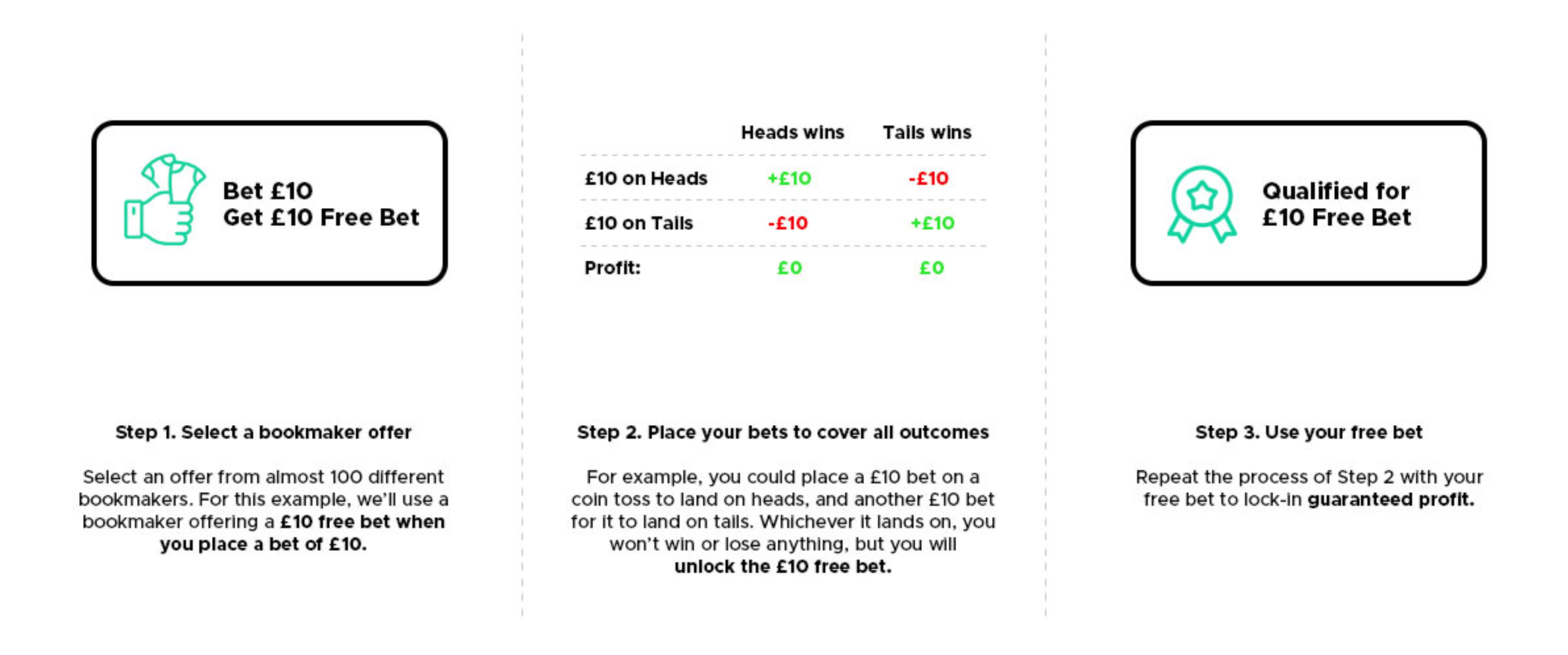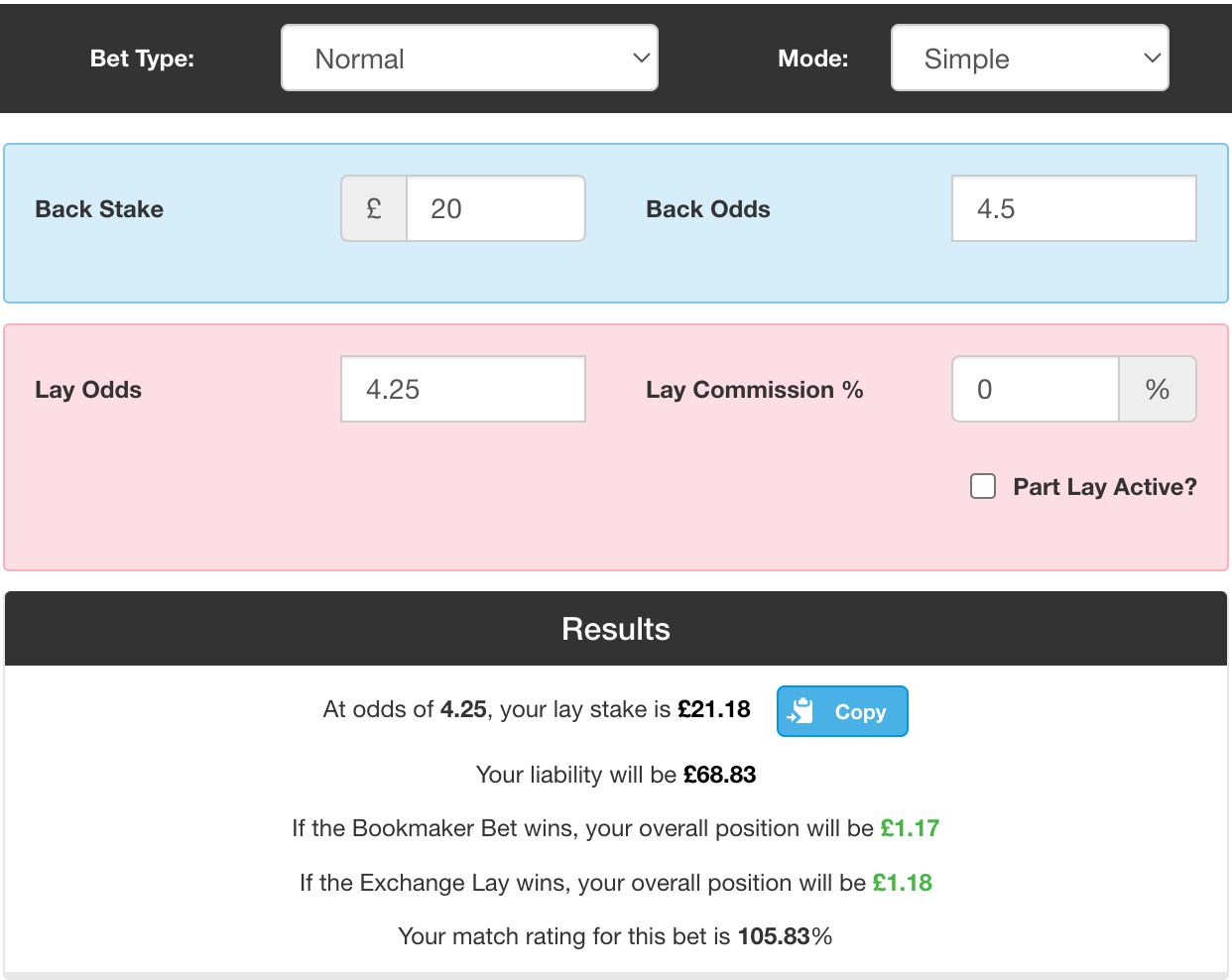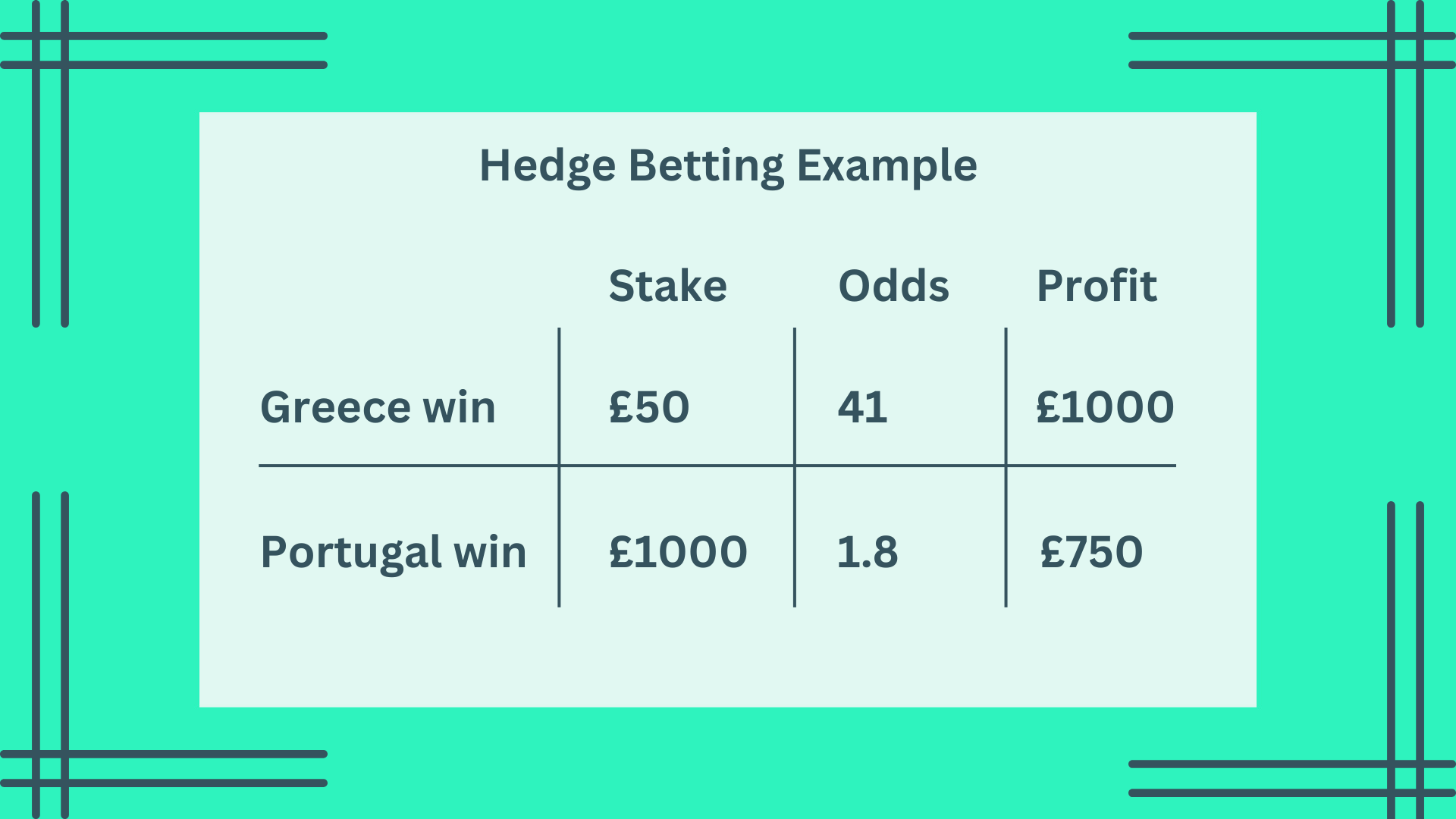Sports Betting Guide: From Beginner To Pro
There’s something about gambling that holds an irresistible appeal for humans. For as long as there has been civilisation, there has been betting of some sort - and for as long as humans have pitted ourselves against each other in physical competitions, other humans have made bets on the result.
Horse racing (and betting on horses) in particular has an established history that goes back to ancient times, at least as far back as Ancient Greece, over 2500 years ago.
Sports betting is, then, one of the oldest forms of entertainment in the world, though it looks a bit different nowadays. The majority of betting now takes place online through online betting sites, and it’s easier to get into sports betting than ever before.
But is it really possible to make reliable profits from sports betting? Is there anything you can do to improve your success rate, beyond going for a likely selection and hoping for the best? And can a beginner wade through the overwhelming jargon to become a successful sports bettor?
Well, there are quite a lot of people who do make consistent profits from sports betting, but it’s important to be aware that it isn’t risk free. It also requires strict self-discipline to avoid falling prey to the tricks used by bookmakers to encourage bettors to gamble riskily, and sufficient funds to ensure you can weather any downturns in your fortunes.
For a safer option that offers guaranteed profits, . It works by taking advantage of the various offers bookies regularly promote, to allow you to lock in a guaranteed profit, with none of the risk of traditional sports betting - so long as you do it right.
We’ll go into more detail about Matched Betting later on, but if you already think this sounds like the strategy for you, you can go straight to our free trial and start making your first profits from Matched Betting.
In this article, we’ll cover everything you need to know about sports betting, from the sports most frequently bet on and how betting odds work, to more complex subjects including betting strategies and bankroll management.
Whether you’re a total newcomer to sports betting, or an experienced bettor looking to refine your strategy, we’ll take you through everything you need to know to bet on sports as safely and profitably as possible.
Sports Betting Basics
What is sports betting?
Sports betting is, as it sounds, the act of betting on sports. In its simplest form, a sports bettor wagers their money (the stake) on an outcome of a sporting event - e.g. that a team will win a match, or a competitor will win a race. If they’re right, the bookmaker pays them a return on their stake, according to the odds at the time they placed their bet. The higher the odds, the more money the bettor wins - but also the less likely they are to do so.
Types of bet
There are a huge number of types of bet, which can quickly become very confusing to a newcomer. Leaving aside the very most complex ones, which are best tackled by experienced sports bettors, here are some of the most common:
Singles bet
The simplest and most straightforward type of bet - you’re betting on one outcome at a time, at the odds listed on the betting site. For example, you might bet that Manchester United win their next match, or that Emma Raducanu wins hers.
Multiples bet
As it sounds, a multiples bet involves betting on more than one thing at once. There are endless possible combinations of bets, but a couple of main types of multiples bet:
- Bet builder. This involves betting on multiple selections within one match. For example, you might bet that Manchester United win their next match, and that both teams score in the match, and that at least 3 goals are scored in that match. If all those things happen, you win your bet.
- Accumulator bet. This involves betting on the outcomes of several different matches or races. For example, you might bet on the winners of four different horse races, or on the victors in five different football matches. If all your choices are winners, your bet will win - and as the chances of this happening are quite low, your winnings are usually pretty high. Double bets and treble bets are technically types of accumulator bets, though most bookies use the term ‘accumulator’ to refer to bets with four or more selections.
Over/Under bet
This is a bet on a statistic within a match, for example on the number of goals within a match. You can bet if, say, there are over 5 goals within a match - and if that is indeed the case, you’ll win.
Handicap bet
This type of bet is one of the most confusing to newcomers. It involves giving one team or competitor a head start over the other - so for example, you might bet on one team with a handicap of -1, meaning that they’d have to win by at least 2 goals for you to win your handicap bet. Similarly, in tennis, you might add or subtract a game or even a set from a player’s final score for a handicap bet.
The idea is to even out matches where one team is the strong favourite, making it more worthwhile to bet on their opponent. There are two major types of handicap betting, Asian handicap and European handicap, so make sure you understand the difference before you try your hand at either one.
Bear in mind also that handicap in horse racing works very differently - although it is roughly based on the same principle of balancing out competitors with large disparities in performance.
Each way bets
These are usually found in horse racing, but can also be made on sports such as greyhound racing or golf, where a ‘place’ market may be offered. Place betting means betting on a competitor to finish within a few places of the top, the number of paid places depending on the number of competitors in the event. Horse races will often have 3 or 4 paid places (though sometimes more!), while golf tournaments may pay out on the top 3, 5, or even 20 places.
An each way bet is a bet on both the win and place markets, so you get a payout whether your selection wins or just makes one of the top places. The places won’t pay out as much as a win, but some bettors place each way bets to help mitigate potential losses. The downside is that your stake is effectively doubled (as you have one bet on a win, and one bet on a place), meaning that if your selection doesn’t even place you lose twice as much.
Spread betting
For many people, this is a very confusing concept, so you should only place a spread bet if you’re confident you understand how it works. In spread betting the degree of accuracy of your bet determines your winnings - or your losses.
For each market, a bookie will offer a particular ‘spread’ - a prediction of what the outcome will be. The customer then bets on whether the outcome will be higher or lower than the spread, and their winnings or losses depend on the accuracy of that bet.
Although spread betting is most common on football, there are also markets for spread betting on horse racing, basketball, and other sports as well.
In-play/in-race bets
As they sound, in-play bets are placed after an event has already started. The benefit of in-play bets is that you already have some idea of how the match is going, which you can use to make an educated guess as to how it might turn out.
The downside is that you have to be quick! The odds change constantly over the course of a match or race, so you need to be on the ball to lock them in. This can potentially lead to mistakes or poor decision-making, as you have to act so swiftly.
Other bets
There are an incredible range of possible bets, often combining multiple bets in different ways, for the more experienced bettor to dabble in. Check out our comprehensive guide to types of bets to find out everything you need to know about more obscure bets, like Lucky 15s, Heinz bets or Yankee bets.
Understanding Betting Odds

Before you start sports betting, it’s important to understand how betting odds work. Betting odds represent the amount somebody can expect to win in the event of their bet being successful. The higher the odds, the more a bettor will get if they win their bet, while lower odds will result in a much more modest return.
Betting odds are also a representation of probability. Higher odds mean that an outcome is considered much less likely to occur, while low odds will indicate that a team or player is the favourite to win. However, it’s important to note that bookies add on a margin to their odds to ensure a profit, and that they adjust odds to encourage balanced betting, so you can’t rely on odds to indicate the true probability of something happening.
Types of odds
There are a few types of betting odds, some easier to read than others, and each is prevalent in a different part of the world. If you’re based in the UK, you’ll mostly come across fractional and decimal odds, but as you might also encounter American moneyline odds we’ll explain how they work too.
Fractional (British) odds
The traditional format for odds in the UK, fractional odds indicate the amount you will win depending on your original stake, with the first number showing your winnings, and the second your stake. For example:
2/1 odds indicates that for every £1 staked you will win £2 (equal to 3.0 in decimal odds and +200 in moneyline odds)
Decimal (European) odds
With decimal odds, you simply multiply your stake by the odds to calculate your total return (including your original stake) on a bet. For example:
3.0 odds means that if you bet £1, you receive a total of £3 if your bet wins (equal to 2/1 in fractional odds and +200 in moneyline odds)
Moneyline (American) odds
Moneyline odds come in two different formats, depending on the likelihood of an outcome.
For an outcome that is more likely than not to occur (i.e. a favourite), moneyline odds are expressed in the negative, while for an outcome that is less likely to occur (i.e. an underdog), the odds are expressed in the positive.
For a favourite, the odds indicate the amount you have to bet in order to win £100 (or, as they’re more commonly used in the US, $100). For an underdog, meanwhile, the odds indicate the amount of profit you’ll make if you bet £100.
+200 odds means that if you bet £100, you’ll make £200 in profit if your bet wins (equal to 2/1 in fractional odds and 3.0 in decimal odds)
-200 odds means that you need to bet £200 in order to make £100 in profit if your bet wins (equal to 1/2 in fractional odds and 1.5 in decimal odds)
Assessing and comparing odds
Although the fractional format is the traditional one in Britain, many sports bettors find it much easier to use decimal odds, which allow for easy comparison of odds.
If you’re employing any kind of betting strategy or searching for the best value odds, it’s crucial to be able to easily identify whether odds are worth your while taking, and that’s much easier with decimal odds.
On betting sites, you can usually change the odds format from the settings page, which is something we’d recommend doing before you bet with any bookmaker.
The Best Sports For Betting
When it comes to betting, sports are definitely not equally popular. Football and horse racing dominate the sports betting landscape, and although you can place bets on other sports, you may find it’s harder to find good odds - or, if you’re Matched Betting, harder to find a good lay on the exchange.
Football
As the most popular sport in the UK, it’s no surprise that football is also the most popular sport for betting. During football season, football markets will dominate bookie sites, with enormous volumes of money being staked on each day’s matches.
The most common bets on football are on the full time result (which doesn’t include extra time), but the list of markets available on the highest profile matches are almost endless.
2UP bets, where your bet is paid out if your team goes two goals up at any point in the match, have gained a lot of popularity in recent years, but punters will bet on pretty much any statistic you can think of in the hope of snagging themselves a win. First goalscorer, scorecast betting, and goal line betting are all popular forms of betting on football.
Below you can see just a few of the ‘special’ markets available on Bet365 for an upcoming Tottenham v West Ham match.

Horse racing
Horse racing has been intrinsically linked with betting for most of its history, and that connection is still going strong today, whether on or off-course. For most people, a ‘day at the races’ means making at least a couple of bets on those races, and online betting has made it possible to recreate that experience on a daily basis if you’re so inclined.
Horse racing is somewhat unusual in that the odds are, to an extent, regulated. The starting price (SP) is the official odds at the start of a race, determined by the prevailing odds over a range of bookies at that time.
The benefit of this to bettors is that many bookies offer Best Odds Guaranteed, which means that your selection is paid out at the SP if this is higher than the odds at the time you made your bet.
As with football, there are a lot of ways to bet that are specific to the sport. Accumulators and exotic bets are especially popular among horse racing bettors, and there’s a vast range of options for laying money on races in different ways. Lucky 15s are a common type of horse racing multiple bet - and with the right software to give you hints as to profitable selections, can result in huge returns.
Tote betting (also known as pool betting) is also popular. Here, all bettors on a particular event (usually a race) contribute to a pool of money, which is then divided between those whose bets were successful (after the bookie’s cut has been taken). This means you don’t know in advance how much you stand to win, but it does often end up being quite similar to the prevailing odds at the time.
Because, as any owner will attest, horses are especially prone to injury, the bookmakers have developed rules to deal with horses being pulled from races.
Rule 4 dictates how the return on a bet will be affected if another horse pulls out of the race, and it’s important to be aware of the potential effects of a rule 4 deduction, as it can have an unexpected impact on your profits.
Tennis
Tennis is another popular sports betting option in the UK - and has courted some controversy in its betting history. The most popular (and most straightforward) betting market is the match winner, but you can also bet on the correct score, individual sets and games, and the overall tournament winner. Just be aware that tennis betting has some pretty specific retirement rules, which could affect your betting success.
The four Grand Slams - Wimbledon, The US Open, the French Open and the Australian Open - are the biggest tournaments in the year, and they attract the highest volume of bettors.
Darts
Although darts is a somewhat niche sport in the UK, it has a passionate following, and consequently a surprisingly large pool of bettors. Straight betting on the winner of a match or tournament is the most common form, but gamblers can also choose to bet on the number of match trebles, place darts handicap bets, or each way bets on a player’s overall position in a tournament.
NBA
NBA, for those not in the know, stands for National Basketball Association, and is the biggest basketball league in the world. While basketball isn’t nearly as popular in the UK as across the pond, betting on the American game is increasing, whether that’s placing straight bets, handicap bets, or spread betting. If you’re betting on an NBA game, it’s worth being aware that there can be some complex rules regarding overtime, so make sure you know whether overtime is counted in the bet you place.
eSports
eSports, the competitive playing of video games, is one of the newest sports in existence, so much so that people often have concerns about whether it’s even legal to bet on it (spoiler: it is, in the UK at least). eSports gambling has grown as swiftly as the sport itself, and it’s now quite common to find betting sites with eSports betting markets available.
Others
If you’re a fan of other sports, don’t worry! There’s a market for pretty much every sport you can think of, so if your sports knowledge is hyper-focused on, say, cycling, you can still put it to good use in your betting. Most bookies have a full list of sports available on their websites, so you can choose the sport that most appeals to you from there. Whether you’re keen to bet on snooker, golf, cricket, boxing, American football, UFC, F1, virtual sports or greyhounds you won’t have any trouble finding a bookie willing to offer a market.

Many bookies will also have regular offers on less popular sports, to encourage their customers to bet on them. This means you may be able to take advantage of these offers to make guaranteed profits through Matched Betting, despite them being relatively niche in the world of sports betting.
Matched Betting
One of the best alternatives to straightforward sports betting, where you run the risk of losing no matter how systematic you are, is Matched Betting. This strategy allows you to entirely remove the element of risk and to make guaranteed profits, provided you make your bets correctly.
What is Matched Betting?
Matched Betting works by taking advantage of the offers and bonuses offered by bookmakers, designed to lure new customers. By betting both for and against the outcome of an event, you’re able to turn a free bet into guaranteed profit.
Most offers run along the lines of ‘Bet £10 and get a £10 free bet’. By matching the first bet, you break even - and you’re then able to make a profit on the free bet.

This does take away some of the excitement of traditional sports betting, but in truth that’s not a bad thing. The thrill you get when an unlikely punt wins is exactly what can draw you into unsafe gambling; by taking away the element of uncertainty, Matched Betting can help you to stick to safe habits and avoid emotional betting.
Matched Betting is also one of the easiest ways for beginners to get into sports betting, as it requires very little in the way of sports knowledge. You don’t need to know or care which team is more likely to win a football match, as you’ll make the same amount in profit no matter what happens.
Advantages of Matched Betting
- When done correctly, it has zero risk
- You always know the amount of profit you stand to make in advance
- You’re less likely to be drawn into addictive gambling
- No real sports knowledge is needed for successful Matched Betting
- It’s possible to start with a fairly limited bankroll - as little as £30 - £100
Other Strategies For Successful Sports Betting
Although Matched Betting is the safest sports betting strategy, there are other strategies you can try that offer long term value. It’s important to remember that there is always risk in gambling, however, and that there’s a good reason why bookies make so much money, which they couldn’t do without taking it from their customers.
That said, it is possible to use mathematics to your advantage and give yourself the edge when placing sports bets. The key is to approach your betting systematically, to avoid making decisions based on emotion rather than reason, and never to bet more than you can afford to lose.
Value betting
Value betting is a betting strategy that gives you an edge over the bookmakers by finding odds that are higher than they should be - i.e. where the real likelihood of something happening is greater than implied by the odds.
It involves accurately working out how likely an outcome is, then using this information to find ‘overpriced’ bookmaker odds and betting on these.
This isn’t risk-free - it’s perfectly possible for every bet you place to lose - but statistically you should end up making a profit by consistently employing this strategy. There are a few tools you can use to identify good selections for value betting:
Steam chaser
This tool takes advantage of the fact that odds sometimes change suddenly and simultaneously at multiple bookmakers. This sudden change is known as steam.
There can be numerous causes of this change, including team news, player injury, weather, insider knowledge, or sharp bettors having differing opinions to the bookmakers on their odds.
Following these sudden changes of odds is called “steam chasing”. As long as there’s a sound reason for the odds change, one way to capitalise on it is to place a bet with a bookmaker that is slower to respond and hasn’t yet cut their odds. Outplayed’s steam chaser tool identifies suitable bets for you, allowing you to consistently place bets at odds that offer positive value, giving you the chance to make consistent long term profits.
Extra Places
An extra place offer is when a bookmaker states they will pay out on more places than usual, for example, the top four instead of the normal top three places.
A bettor can place an each way bet, and lay both the win and the original number of places, so that if their horse comes in the extra place, they win both the back and lay bets, making for huge profit potential.
You can also place each way bets without laying them, on selections that offer positive expected value, which are likely to result in profits in the long term. Outplayed’s Extra Place Master tool identifies selections with positive expected value, allowing you to massively boost your profits in the long run.
Lucky Finder
The Lucky Finder is a tool that tracks down combinations of horses for Lucky 15 bets where the chances of at least some of your horses winning or placing are higher than the odds would imply. This means that you’re statistically very likely to end up making a profit over the long run when using this tool.
It’s worth noting that these are advanced tools for those who are already comfortable with the principles of value betting. If you’re less experienced, we’d advise you to try out Matched Betting first, which has zero risk (when done correctly) and offers guaranteed profits.
Arbitrage betting
Arbitrage betting uses Matched Betting techniques to lock in guaranteed profits, without relying on offers from bookies. If the back odds at the bookie happen to be higher than the lay odds at the exchange, you have the opportunity to make an instant profit if you place a matched bet on that particular selection.
For example:
Back odds on Chelsea to win: 4.5
Lay odds on Chelsea to win: 4.25
If you place £20 with the bookie, and lay your bet accordingly, you can make an instant profit:

The downside to arbitrage betting is that the discrepancy is usually due to a delay in the bookie updating their odds, and they’ll catch on to what you’re doing very quickly. For this reason, it’s not advised to place arbs except with bookies who have already gubbed you, to avoid compromising your account health.
Hedging
Hedge betting refers to betting on different outcomes of an event to secure a profit. Unlike arbing, this doesn’t rely on finding discrepancies between bookmakers’ and exchanges’ odds, but on odds changing over a period of time.
Betting on outright sports markets (for the overall winners of a championship or tournament) can be a successful strategy for hedge betting.
Let’s say, for example, that in 2004 you bet £50 on Greece to win the Euros at odds of 41 (approximately the prevailing odds in advance of the tournament’s start).
By the time they reached the final against Portugal, you would be one match away from winning £2,000.
Greece were still very much the underdogs, though, and Portugal were expected to win, which would have left you with a £50 loss. However, you could hedge the bet by backing Portugal.
If Portugal had odds of, say, 1.8 to lift the trophy, a £1,000 bet would bring a profit of £800.
So, a Greece win would make you £1,000 in profit (your £2000 win minus the £1000 bet on Portugal), while a Portugal win would be £750 (your £1800 win minus the £50 bet on Greece).

Bankroll Management
If you do start seriously sports betting, one of the most important considerations is your bankroll. It’s best to designate a certain amount for sports betting purposes, so that you don’t risk money that you actually need.
The importance of managing your bankroll
It’s logical to start sports betting slowly, finding your feet before you invest too much time and money, but it can be easy to conclude that this means you don’t need to be systematic and organised at first. That would be a mistake, however; to avoid the many potential pitfalls of sports betting, organisation is key.
By keeping track of where your money is and how much is wagered at any time, you ensure that you never end up in a position of risking more than you can afford. This can also help to curb emotive betting, as strict organisation and systematic betting helps to enforce self-discipline.
Furthermore, if you’ve set aside a sum of money as your bankroll that you can comfortably afford to lose, you place a firm boundary on your sports betting, thus reducing the likelihood that you’ll slip into irresponsible gambling.
Unit betting system
Many systematic sports bettors employ what’s known as a ‘unit betting system’. This refers to the amount staked on each bet they place - by setting a certain amount each time, they ensure they’re never risking an unaffordable sum.
Bettors may decide always to wager a fixed amount - say, £10, which would work out to 1% of a £1000 bankroll. This makes for very easy record keeping, and only ever risks a very small percentage of their total bankroll. The downside of fixing your stake is that there’s no way to take into account the odds in question, or the likelihood of your bet being successful.
The Kelly Criterion Betting System is a staking system commonly used by more advanced bettors to solve this problem.
It takes into account the odds offered by the bookie as well as the estimated likelihood of the bet winning to determine the optimal stake for any bet.
As a rule, though, we recommend staking only a fraction of the recommended Kelly stake - usually 0.25 - as it can lean towards wagering an excessively large, and therefore excessively risky, proportion of your bankroll.
Tracking your bets
Keeping track of your betting is crucial for a successful sports betting strategy. If you aren’t organised, it’s far too easy to forget bets you’ve placed and where you placed them. Losing track of how much profit you’ve made (or how much of a loss) can also be incredibly risky if you’re aiming to follow a systematic betting plan.
Outplayed’s profit tracker helps you keep track of everything, whether you’re Matched Betting or value betting using our tools, allowing you to stay organised with next to no effort on your part. Or alternatively, you can copy our free spreadsheet, or create your own.
Common Mistakes In Sports Betting

There’s always going to be risk in sports betting, but that risk can be heavily exaggerated when the bettor makes mistakes of their own. Gambling is by nature an addictive activity, and bookies prey on human psychology to encourage their customers to bet riskily.
You may be confident that you can resist the psychological tricks employed by bookies, but that’s harder to do if you aren’t aware of the fallacious reasoning bettors often fall into.
Below are some of the most common pitfalls of sports bettors - make sure you understand them, so that you can recognise and resist your own erroneous thinking.
Chasing losses
We’ve all heard of gamblers who have suffered one loss and kept on betting, convinced that one big win will make it all back, until they’ve emptied their savings and, often, borrowed heavily from friends and family. This is partially due to Gambler’s Fallacy, the mistaken belief that a streak of one result makes it more likely that the other will follow.
If you’re seriously considering sports betting, it’s crucial to stick to a plan, and not to let any downswings alter your betting or staking. If you’re consistent and careful, and bet only in a manner that offers positive value, this should allow you to weather downswings; keep this in mind if you’re ever tempted to chase your losses.
Overconfidence after wins
The corresponding mistake sports bettors often make is to feel that a couple of big wins means that they’re more likely to enjoy further wins. This is, of course, entirely irrational - that’s simply not how chance works - but people are extremely prone to thinking this way.
Similarly, bettors may become overconfident if they’ve come across a hot tip and risk more than they should in hopes of a big win. It’s important to remember that, no matter how promising a particular selection might look, there’s never any guarantee of it winning.
Again, the key is to stick to your original plan, without letting a run of good luck affect your betting or staking. In the long run, resisting emotive decisions will always produce better results than giving in to irrational impulses.
Ignoring bankroll management
As we’ve hopefully made clear above, bankroll management is incredibly important. It may not be the most fun part of sports betting, but without good bankroll management you won’t be able to gauge whether a particular stake is affordable or even how much profit you’ve actually made.
And with our profit tracker or free spreadsheet it’s easy to keep on top of your bankroll - so there’s no excuse to let bankroll management slide!
Allowing yourself to become addicted
Most dangerous of all is allowing yourself to develop a gambling addiction. Unfortunately, it’s also hardest to spot the warning signs in yourself, which means you have to be extremely vigilant to avoid falling prey to problem gambling.
Prevention is very much better than cure, so it’s wise to regularly assess your betting behaviour and attitudes to ensure that they’re still healthy and rational.
If you find yourself becoming strongly tempted to stray from your systematic betting strategy, or placing bets because you have a good feeling rather than data to back up your selection, you may be falling into unhealthy gambling patterns.
Gambling addiction has destroyed millions of lives, and recovering from the financial consequences can take years. It’s never worth taking that risk - so if you start to notice problematic betting habits in yourself, the only responsible course of action is to stop betting altogether.
You should also take advantage of available tools to help those struggling with problem gambling; GambleAware can offer help and advice in the UK, while GamStop allows you to exclude yourself from betting sites for a set period.
Legal And Administrative Considerations In Sports Betting
Is it legal?
Yes, sports betting and Matched Betting are 100% legal in the UK - though other countries have more restrictive legislation.
You should be aware, though, that strategies to ‘reduce risk’ are often considered to be breaking terms of bookies. This means that if bookies detect what they consider to be ‘suspicious’ patterns of behaviour - for example, bets frequently placed on selections whose odds subsequently decrease, or bets on obscure events - may result in restrictions being placed on your account (otherwise known as ‘gubbing’).
Even winning too much can be a trigger for a gubbing - and while you can hardly stop yourself winning, there are certain measures you can take to reduce your chances of having your account restricted.
And although it’s unlikely to affect most people, you should also bear in mind that professional sports players are usually not allowed to bet on their sport.
Are you taxed on winnings?
Not if you’re in the UK! As a rule, gamblers tend to lose more money than they make, which is why gambling winnings aren’t taxed; it’s such an administrative headache to offset losses against winnings that it simply isn’t worth it. Even a professional gambler - say, a successful poker player - won’t be taxed on their gambling income, no matter how much they make.
Although Matched Betting can’t really be considered gambling, it still comes under gambling for tax purposes, meaning that you can make guaranteed profits through Matched Betting without paying any tax at all.
If you’re based outside the UK, though, you should check on the tax regulation surrounding gambling in your country, as this varies enormously around the world. In the USA, for example, you do pay tax on gambling winnings, and working out what you owe can be a major headache.
Summary
If you’ve made it this far, well done! There’s a lot to get your head around when you first start sports betting, and reading through our comprehensive guide is an excellent first step. Hopefully you feel more confident about making your first sports bets - but you can always read the in-depth articles linked to here to gain a fuller understanding of the concepts and strategies we’ve talked about. You can also check out sports blogs for detailed insights and tips for sports bettors.
And if you like the sound of Matched Betting, or if you’re hesitant to take the risks involved in sports betting, why not give our free trial a go? Our software takes you through accessing your first offers, placing your first bets, and making your first profit, so you always know exactly what you need to do next and how much you’ll make.
Updated: 13 Nov 2025
The Author
Stephanie is a published author and, having taken up Matched Betting fairly recently, she knows exactly how beginners feel when they first start Matched Betting. She loves breaking down complex subjects in straightforward terms to make them accessible to newcomers, and to speed them on their way to making their first profits.

